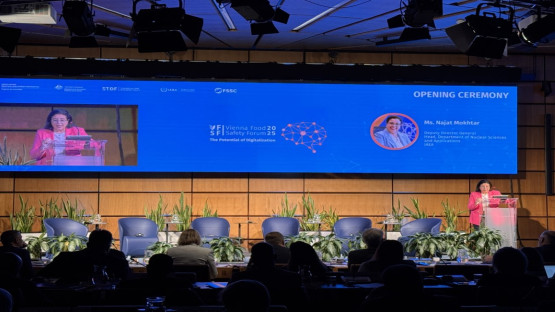How do we ensure the safety of food crossing borders every day? How do exporters and regulators verify that products comply with international standards before they reach your table? The answer increasingly lies in digital traceability — built on credible science, trusted laboratories and global cooperation.
At the United Nations Industrial Development Organization’s Vienna Food Safety Forum 2025, global leaders and experts explored ways to strengthen food safety and control systems through innovative digital and data driven solutions. Addressing the forum, Najat Mokhtar, IAEA Deputy Director General and Head of the Department of Nuclear Sciences and Applications, emphasized that “credible science and trustworthy laboratories are the backbone of digital traceability”.
“Without reliable data, traceability systems risk becoming empty promises,” she added. “The IAEA’s role is to ensure that countries have both the technical capacity to assess compliance with regulations and standards and the confidence to engage fully in global food trade.”
In a world of complex supply chains, evolving regulations and climate-driven challenges, digital traceability systems have become indispensable. These tools help monitor food safety hazards and verify compliance with standards, but their success depends on the integrity of the laboratory data behind them.






